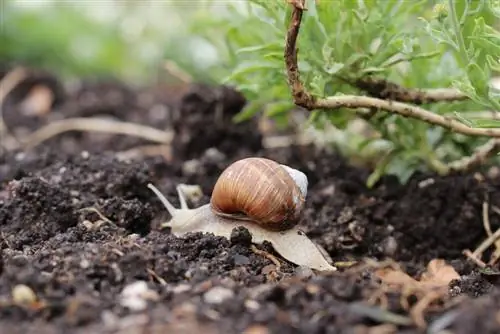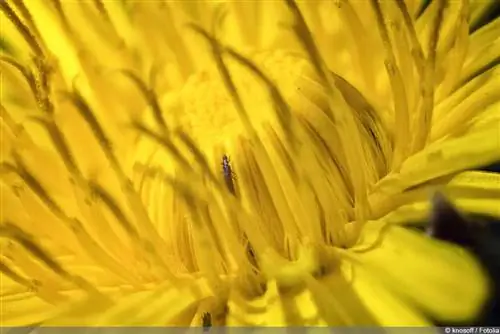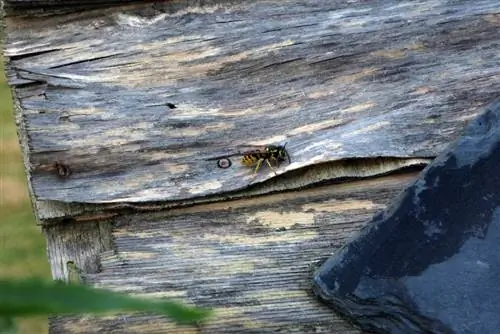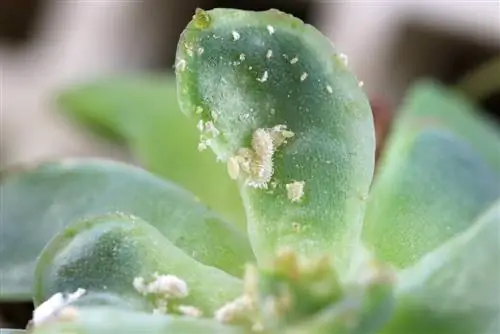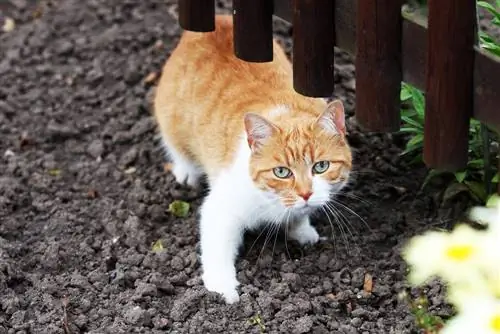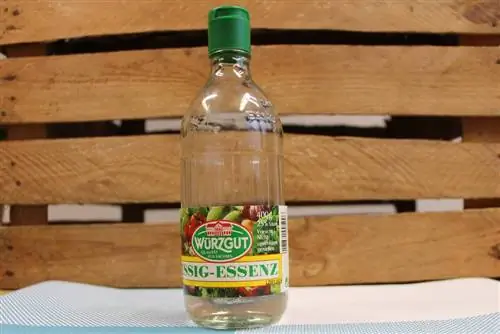- Author admin [email protected].
- Public 2023-12-17 03:39.
- Last modified 2025-01-24 12:45.
Snails are a burden for the gardener. They reproduce quickly and they have few natural predators populating the garden. This definitely includes the hedgehog, which should be protected if it lives in your garden. If you notice a large increase in snails in your garden, you can use natural and chemical remedies to combat them.
Fighting snails to protect plants
The snail prefers to eat young green leaves. She is less interested in the flowers. For example, if you plant marigolds in pots or flower beds in May and lots of snails populate your garden, you won't be able to enjoy the flowers for long. The snails eat all the leaves, causing the plant to die. However, an infestation of bushes does not always lead to the plants dying. But the leaves are also eaten there, which means that the yields are either missing or very rare. Flowers are not formed or only very sparsely formed and the bush is prevented from growing. You should therefore do something about the snails. Make sure all year round that the animals cannot reproduce unhindered. If the infestation has already started and the plants are damaged, it is often too late and you can no longer save the summer flowers in particular. Shrubs may recover over the course of the season, but yields will still be lacking or very sparse.
Natural predators of the snail
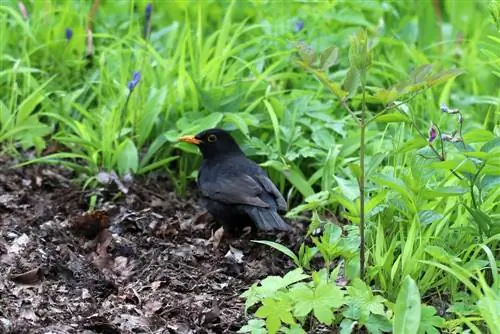
The snail has increased significantly in recent years. This particularly affects the slug, which emerges in wet weather and literally populates the gardens in some regions. The problem is that there are natural enemies. However, these rarely live in a kitchen or ornamental garden or they are just as undesirable there as the snail. This definitely includes moles. But toads, chickens and ducks also eat snails or eat the eggs. They just don't run around in a modern garden anymore. The only resident of the garden is the hedgehog, but he alone cannot fight a snail plague. Some songbirds are also interested in a snail as food. These include blackbirds, parents and crows. Seagulls and herons are helpful in controlling snails if the garden is near a body of water.
Use home remedies or chemical agents to combat snails
If you want to permanently remove the snail from your garden, you should use products all year round. The animals move very slowly, but they lay a large number of eggs. The young then hatch from this and populate your garden. If you don't want to collect a lot of dead animals from your garden, it is a good recommendation to destroy the eggs already. You can use home remedies to defend yourself against the snail plague, or you can rely on chemical agents. But these also affect your plants. If you value an organic garden, you should avoid chemical products. There are various home remedies that are very successful and are also very easy to use. Since you have these resources available in your home anyway, you will not incur any additional costs.
Natural methods for snail control
You can choose between different methods if you want to fight the animals naturally. Choose a variant that you can combine well with your gardening and that suits the size of your garden. The type of animals that have settled in your garden should also play a role in choosing the right product. Nudibranchs have more natural predators than, for example, Roman snails, which are better protected from predators by their house. Decide individually or try out a few remedies to find out which one works best against the snails.
Collect snails
Basically, it is possible to collect individual animals and release them into the wild. However, this is only recommended if you have a very small garden or if the animals have settled in your pots and balcony boxes. In larger gardens the effort is too great. However, collection is the most natural way to rid your garden of animals.
Removing binges with eggs
If you don't want to start collecting the animals every year, you should remove the eggs in the fall. A single snail can lay up to 400 eggs. This explains why an infestation occurs so quickly in your garden. A snail lays its eggs in the fall under large leaves or clusters of foliage. Edges, such as lawn edging stones, or pits are also used to lay eggs. Snail eggs are large clusters of small white balls the size of a pinhead. They look milky and are therefore easy to see. You can prevent it in various ways:
- do not leave planting holes
- remove leaves in autumn and put them in a compost heap
- Removing bark mulch
- Loosen the soil in beds well
- Easily expose nests so that they dry out or are eaten by birds
When you spread compost in spring, you should make sure that it does not contain any snail nests. Otherwise, you could bring a new pest into your garden this way.
Fighting snail plagues with coffee
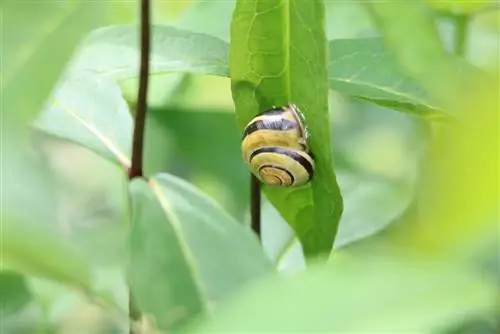
The snail can be easily controlled by scattering coffee grounds. If your family drinks a lot of coffee, this is the ideal prerequisite for effective snail control. The coffee grounds are also biodegradable and do not harm the soil or plants. If the snail eats the coffee grounds, it will die. However, if there is a larger infestation, you should be prepared to have to collect large amounts of dead animals. Sometimes birds also provide important assistance in removing dead animals
Tip:
You can sprinkle the coffee grounds fresh every day. Concentrate on the places in your garden where the snail is particularly concentrated.
S alt as another effective home remedy for fighting snails
S alt is very inexpensive and available in every household. The home remedy is very useful in combating snails because it is easy to use. Similar to coffee, the s alt is very effective because the animals eat it and die. Your plants will not be affected. If you don't like coffee or only drink it very rarely, this home remedy is a very good alternative.
Use chemical agents
Chemical agents are very effective because they contain a poison that kills the animals within a short time. The downside, however, is that your plants come into contact with it. If you value an organic garden, this method of slug control is not a good choice for you. However, it can happen that the plague is very severe and you can no longer achieve success with home remedies. In this case, a one-time use of a chemical snail control agent is recommended and advisable, as you will not be able to get rid of the plague otherwise. Make sure you use the correct dosage and try not to cause too much damage to the plants. Sometimes a combination of chemical control and collection helps, for example if you do not want to burden vegetable plants with chemicals.

